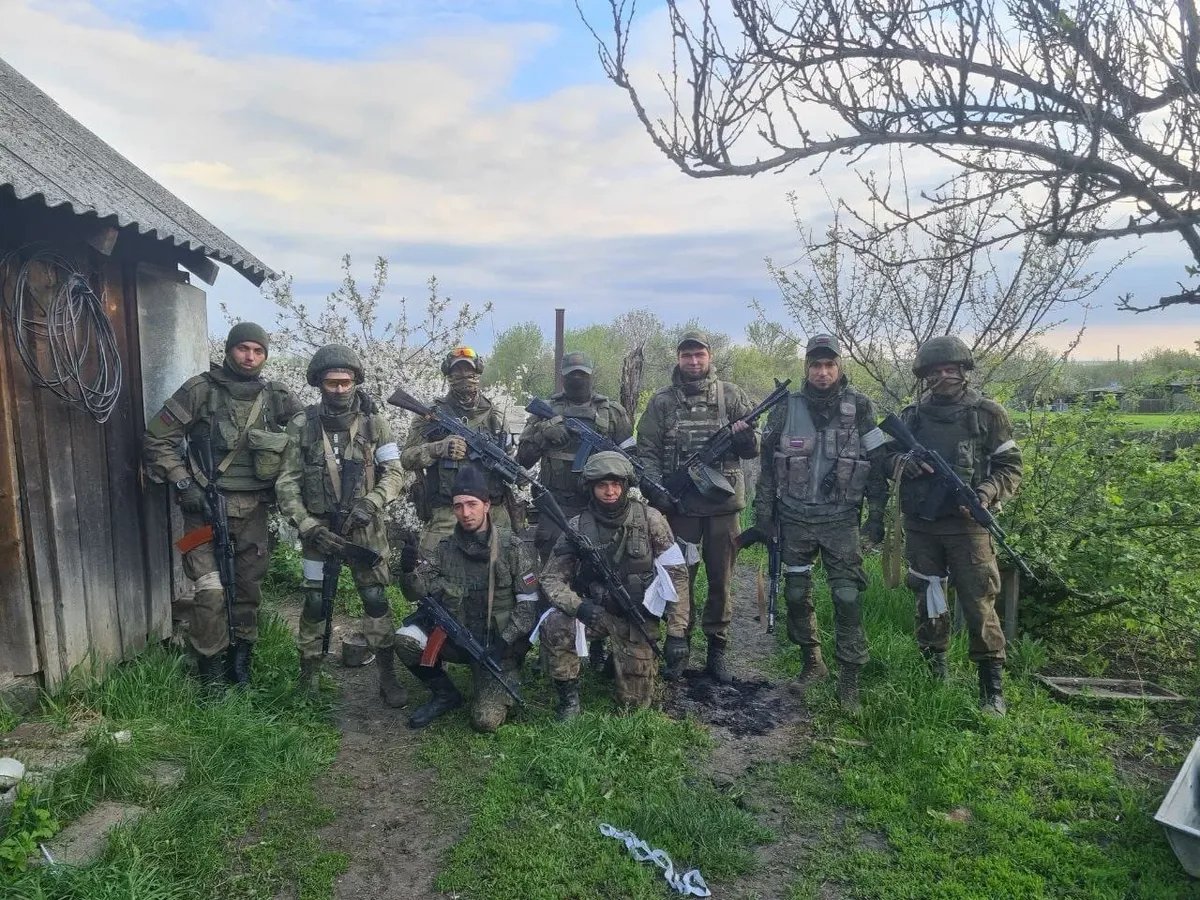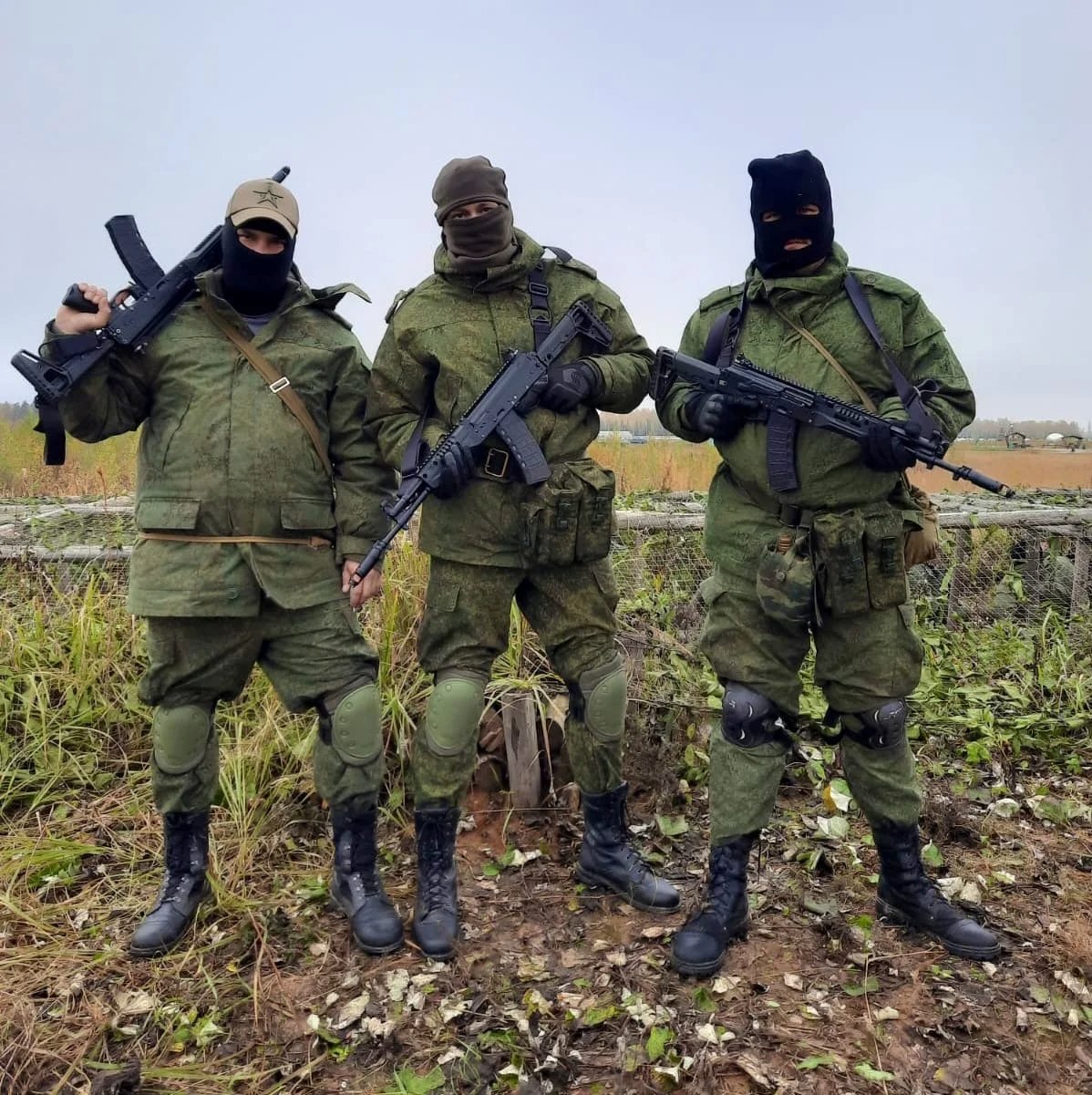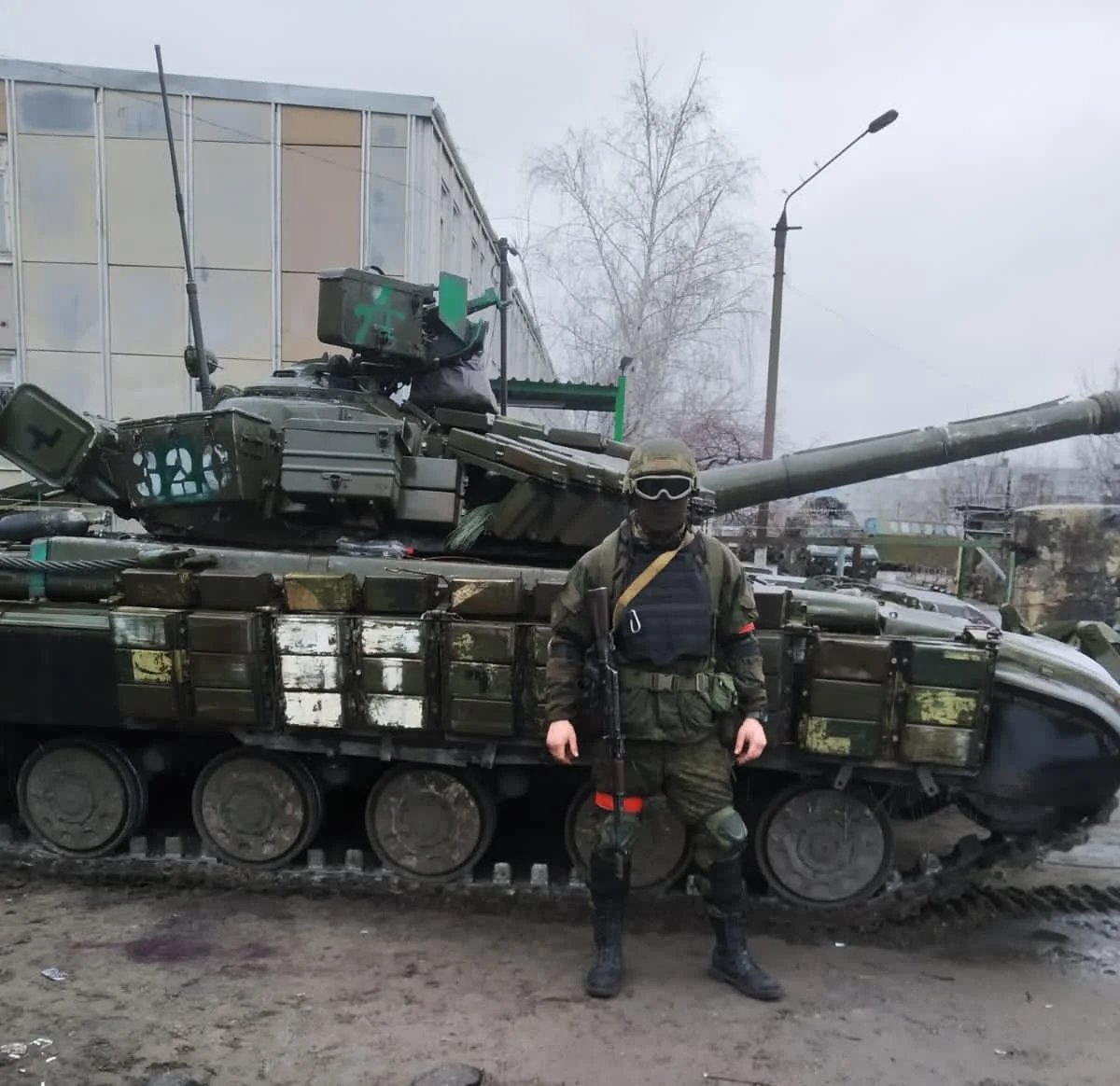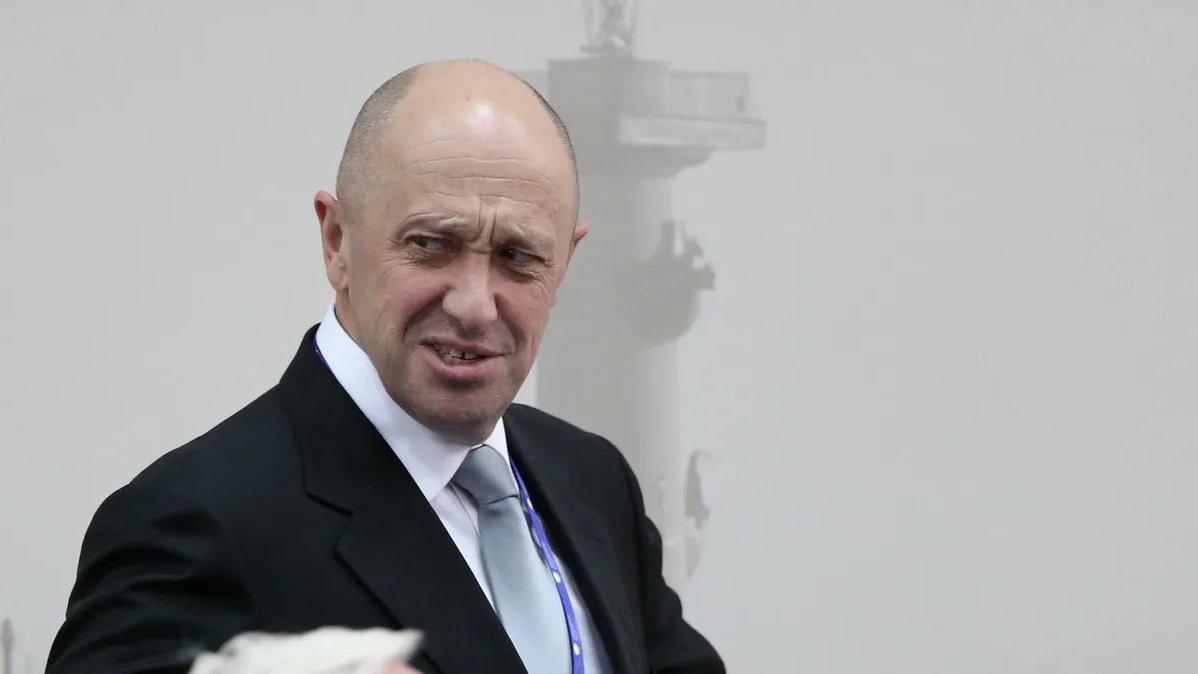Since autumn, Yevgeny Prigozhin, businessman and head of the Wagner Private Military Company (PMC), has been actively and publicly criticising the Russian army leadership. According to some reports, he personally complained about the military to the president. According to a popular version, Prigozhin, together with Ramzan Kadyrov, eventually managed to get Colonel-General Alexander Lapin, the commander of the Russian group of troops “Centre”, removed from office.
But the likely target of the Prigozhin-Kadyrov tandem may also be the higher command: Chief of the General Staff of the Russian Defence Ministry Valery Gerasimov and even Defence Minister Sergei Shoigu. However, there are few chances for this: despite all the ostentatious coolness of Prigozhin, he is hardly taken seriously as a permanent partner and colleague. And no one will allow career‑ups for the head of the Wagner PMC.
‘Send the scumbags to the front barefoot’
The competition between the leadership of the PMC and the army had been known for a long time. But it was last autumn that the conflict came into the public view. Prigozhin, speaking about the need for personnel changes in the Defence Ministry, proposed methods of re-education of the failing generals: “All these scumbags should be sent to the front with machine guns and barefoot.”
At that, Prigozhin spoke flatteringly about Sergei Surovikin, the new commander of the united group of Russian troops, calling him a worthy man. Immediately a hypothesis was spread that Surovikin is a minion of Prigozhin and Kadyrov.
“According to my data, the real creators of the Wagner PMC were Russian special services generals,” says Vladimir Osechkin, human rights activist and founder of the Gulagu.net project. “In fact, initially, this company was an illegal division of the Main Intelligence Directorate, the GRU. Therefore, Vladimir Putin can be safely called the founding father of the shadow organization. Prigozhin was sent there to play the role of a supervisor or figurehead, through whom flows of ‘black’ funds have been withdrawn from the Russian budget under various state contracts.”
“A significant amount of cash is generated, which is necessary to pay salaries to mercenaries. It is obvious that Prigozhin is both treasurer and embezzler there.”
Vladimir Osechkin is sure that starting in 2014, Putin finally felt like a dictator and decided to implement a geopolitical project to conduct a military invasion of the territory of Ukraine. This required detachments of unmarked troops, such as Wagner and Redut PMCs, formed at the expense of the Russian budget and armed from the warehouses of the Defence Ministry, but not formally legalised in any way.
“During the Syrian operation, Prigozhin proved himself as Putin’s deputy, who worked closely with the commander of the group, Sergei Surovikin,” the human rights activist says. “Then the PMCs were part of the Russian armed forces. Similarly, today, Wagnerians are an integral part of the occupation forces in Ukraine.”

PMC Wagner. Photo: VK
Pilots of fortune
Many Russian military personnel are, to put it mildly, not enthusiastic about the actions of the PMC. According to them, mercenaries often act absolutely autonomously, and sometimes sabotage the orders of the local command. They may, for example, not go into attack, exposing the flank of the advancing military formation. Or, on the contrary, be the first to drop into a locality where regular units have not yet pulled up to report to the leadership about a successful assault.
At the same time, the combat effectiveness of the Wagnerians, according to the MOD officers on the ground is, to put it mildly, not up to par. PMCs, together with other Russian units, have not been able to take over the small town of Bakhmut for about six months. At the same time, uniforms, weapons, and most importantly, salaries of “musicians” (as the “Wagnerians” often call themselves) cause the envy of career officers.
“So far, the potentials of the PMCs and the regular army are incomparable,” says Denis Korotkov, an expert at the Dossier centre, to Novaya-Europe. “Although, now the “musicians” have not only heavy equipment, artillery and MLRS, but also aviation. But it’s not just planes and pilots. It is also a very complex maintenance of combat vehicles, and their weapons. Here Prigozhin’s condottieri become dependent on the infrastructure of the Defence Ministry. Directly on the contact line, PMCs make up about one tenth of the total. The prisoners recruited into the ranks of the PMCs have a frenzied rotation. In fact, a crowd of ex-prisoners with machine guns is an extremely ineffective force. And it is impossible to prepare an intelligent shooter to control a large-caliber machine gun or a well-aimed grenade launcher in two weeks.”
Denis Korotkov believes that there is no administrative subordination of PMC fighters to the military command on the ground. At best, they are allies, not subordinates. Surovikin himself is not able to appoint or dismiss even a platoon commander for the mercenaries. If, for example, the troops go into attack, and the Landsknechts do not support them, what can be done? Bringing to justice for breach of orders? And to whom was the order given?
It is pointless to search for a legal component that is missing initially. PMCs are deliberately removed from the legal system of the Russian Federation.
“The majority of the surviving experienced PMC fighters, about six-seven thousand mercenaries, are now in Central Africa, in Mali, in Syria, etc.” says Vladimir Osechkin. “According to our information, over 80 percent of the Wagner group fighting in Ukraine today are ex-prisoners. The rest are instructors who hold the posts of unit commanders after training, or specialists in specific fields. For example, the special “Med” team of executioners, which executes undesirables.”
According to Denis Korotkov, usually “musicians” receive a considerable monetary allowance on time — about 250 thousand rubles [€3,200] a month for an ordinary stormtrooper. Relatives of the victims are rewarded millions without any bureaucratic red tape (they name amounts from 3 to 5 million rubles, or €38,000-64,000) for the loss of a relative. The wounded are promptly treated in military hospitals. Even fighters who have lost limbs are trying to find a place in the organisation.
Korotkov is sure that in terms of the number of awards, the Wagner Group has already surpassed any comparable unit of the Russian Defence Ministry. Medals and orders for “musicians” are issued and distributed directly by the Russian president’s administration. At least six or seven PMC fighters have been given the titles Heroes of Russia. Each experienced officer who has gone through Africa and Syria, as a rule, has several orders of Courage, and “For Services to the Fatherland.”

31st regiment, Wagner PMC. Photo: VK
Negative selection
Denis Korotkov believes that when Prigozhin allows himself to speak unflatteringly about the military leadership, it does not increase affection for him in the troops. “As a rule, everyone, from lieutenants to colonels, fiercely hate Prigozhin,” the expert says. “Exactly until the moment they begin to get a slice from his pie. After that, they fiercely love him. The disgust that many military men feel for Prigozhin has not been publicly shown for many years. And if an officer has kept his conscience, he is more likely to command a company at the front for the rest of his life, and these temptations will not affect him.” At the same time, the military, for the most part, is extremely negative about the methods of introducing discipline adopted in the PMCs, such as summary and sledgehammer executions.
“In my opinion, the defence minister cannot like the situation that has been developing since the early 2010s. A huge share of the military budget has been going to Yevgeny Prigozhin since those times and at the supreme behest,” the expert of the Dossier centre expresses his opinion to Novaya-Europe. “By 2015, many Prigozhin’s structures practically replaced the relevant bodies of the state department. These are all orders for the supply of troops, and construction with maintenance of army camps, and energy supply of the armed forces, and many other issues. A lot of money goes through the high command. A number of military officials were satisfied with this state of affairs. They had their piece of cake. But the main beneficiary, of course, is Prigozhin. There is no friendship in these spheres, but temporary alliances are possible. Say, when Timur Ivanov (Deputy Minister of Defence — editor’s note), took up his position, he was rigidly opposed to Prigozhin. But then he quickly changed his attitude.”
“Speaking about Prigozhin’s lobbying capabilities, I would not exaggerate his weight,” Korotkov reflects. “If he can’t throw off the governor of St. Petersburg, Alexander Beglov, then how can he remove and appoint commanders. So far, we see only a campaign to throw lampoons through his own press service and newspapers. I am sure that he has some influence on personnel policy in the field of the army, but, of course, he does not make the final decisions.”
Love-hate
According to Abbas Gallyamov, political scientist and political strategist, the conflict between the army command and the PMC leadership has its roots deep in history. “I would define it as a love-hate relationship,” he told Novaya-Europe. “I think that the high command of the army hates Prigozhin. Putin, as a distrustful person, decided to put the eggs in different baskets and push Sergei Shoigu a little aside. It’s a kind of checks and balances system. For the military, Prigozhin is a spy who can go directly to the authorities and tell something harmful.”
According to Gallyamov, military professionals cannot like an organisation that recruits criminals into its ranks a priori. Prigozhin himself uses the language of street thugs. Officers are statesmen according to their system of values. They are clearly not close to an odious figure who does not hesitate to use methods far beyond the law.
At the same time, the PMC is fighting together with the Defence Ministry and will not be able to do this without the direct support of the military. Abbas Gallyamov is sure that Shoigu does not like that the components of his system are being taken away from him. This means the reassignment of heavy army equipment, artillery and even aviation to the Wagner Group. Shoigu’s position is supported by many officers of the department. But no one asks them. When the order comes, they get into the operational control of the PMC.
At the same time, internal dissatisfaction is growing. “More and more often you can hear that Wagnerians are fighting better than the official units of the Ministry of Defence,” says the political scientist. “I am sure that such a point cannot but infuriate Shoigu and Gerasimov. I can assume that everything is not so simple. After all, the most combat-ready army units were eliminated thanks to absolutely incompetent leadership at the first stage of the war. Prigozhin’s troops appeared later, when it became clear that the AFU was a serious force, and took advantage of the bitter experience of regular troops available at that moment.”

PMC Wagner. Photo: VK
Kingmaker
One of Prigozhin’s obvious image steps was his public alliance with Ramzan Kadyrov. However, neither Prigozhin nor Ramzan Kadyrov give the impression of people capable of sincere good relations. From the outside, it seems that there is a temporary alliance of two odious near-war figures who have common tasks and a common enemy.
Both of them are undermining the state system from within, seeking higher autonomy for themselves. So far, they are allies. But Abbas Gallyamov believes that soon they will probably become competitors, since they both claim the niche of the coolest macho in Russia. At the same time, they are most likely still wary of each other. And they prefer to trample on General Lapin and others who cannot adequately answer.
“When there is a joint interest, say, to remove the general — they unite,” says Denis Korotkov. “So far, Kadyrov and Prigozhin have no reason to ‘jump’ on each other. Both are known as dangerous people. For now, they will try to maintain their partnership.”
“Prigozhin’s fate will depend on the outcome of the war,” Abbas Gallyamov is convinced. “If the Defence Ministry loses, then Putin can bet on more effective PMCs. However, if history turns for the better for Russia, then it can be assumed that these armed paramilitary formations will be absorbed by the official armed forces. Then Prigozhin will be given the rank of colonel-General and appointed deputy chief of the operational Directorate of the General Staff to be responsible for coordinating actions between units.”
Prigozhin has no chance of a place in big politics, experts interviewed by Novaya-Europe are sure. Probably, this understanding will come to him soon. After all, Putin’s oligarch has nothing to offer Russian society except a sledgehammer.
Almost all elites and the majority of society today want to stabilize and end the crisis. And Prigozhin can only escalate the situation.
“I think that no more than 10 percent of the most insane voters will support him,” says Gallyamov. “But those who favour criminal culture do not go to elections! It is clear that the capture of Kyiv by the Wagnerians is not visible in the foreseeable future. And in order to attribute the victory to Prigozhin, this victory still needs to be achieved. Moreover, it is not clear whether Prigozhin can be more effective than Putin, who has exhausted all resources in the fight against the outside world and brought the system to collapse. Excuse me, who needs such a president? I don’t see any reason for Putin to think about appointing Prigozhin as his successor.”
“I think that the end will come to Prigozhin soon,” says Denis Korotkov. “He has nowhere to advance. Any official post for him is the end. After all, his advantage over others lies in complete informality. There is no such thing as an officially existing private military company. And he himself says that no legalization of PMCs is needed.”
If international investigations of the terrorist activities of the Wagnerians begin, the PMC will simply cease to exist, Vladimir Osechkin is sure. Perhaps we are speaking about months. All the Wagner equipment is on the balance of the Defence Ministry units. You will not find tanks or planes in the documents of Prigozhin’s company “Concord”. Ammunition also goes through the military.
Join us in rebuilding Novaya Gazeta Europe
The Russian government has banned independent media. We were forced to leave our country in order to keep doing our job, telling our readers about what is going on Russia, Ukraine and Europe.
We will continue fighting against warfare and dictatorship. We believe that freedom of speech is the most efficient antidote against tyranny. Support us financially to help us fight for peace and freedom.
By clicking the Support button, you agree to the processing of your personal data.
To cancel a regular donation, please write to [email protected]

